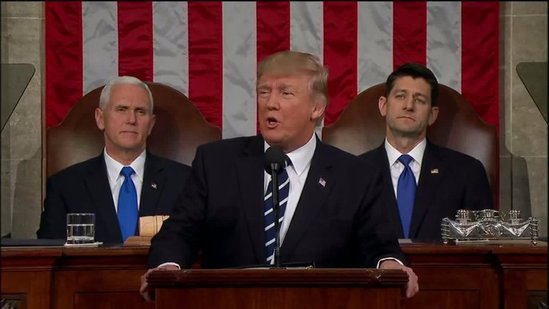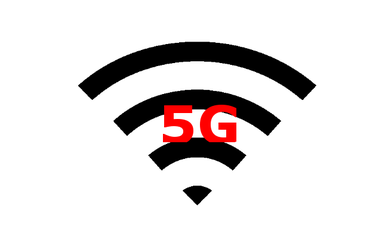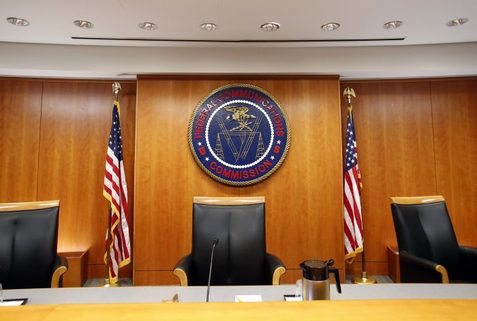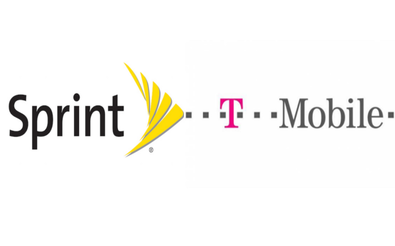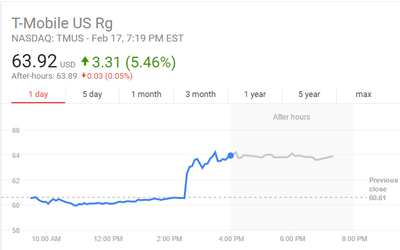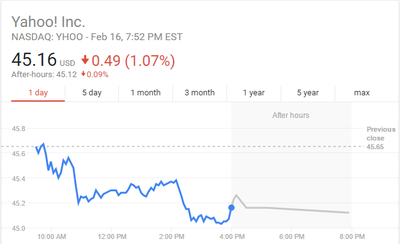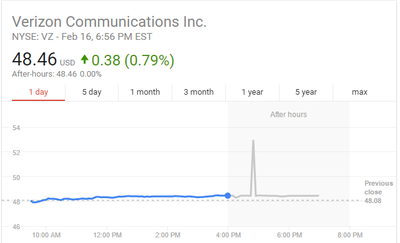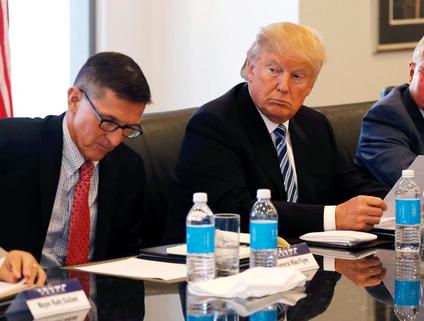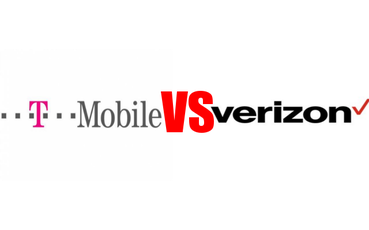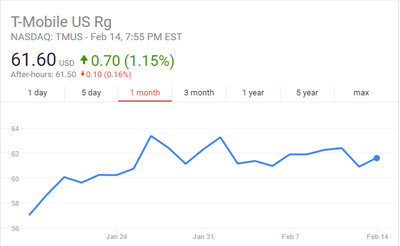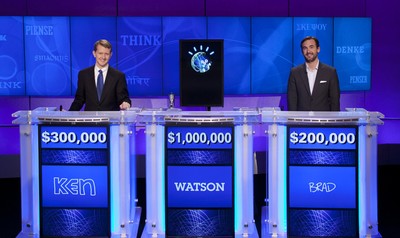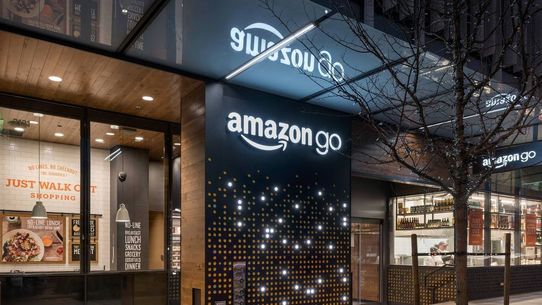|
President Trump had his first address to Congress tonight and it really was a magnificent address. President Trump addressed many key issues and laid out a clear plan for the future of The United States of America.
President Trump continued to talk like he's talked since the day he came down the escalators to announce he was running for president. President Trump continued to preach "America first" while expressing to continue to be the world's gold standard of a nation. The president addressed the key issue of immigration and told Congress, and the American people, how it is and how we are going to fix the problem to better our country. We have to have, and enforce, borders in order to be a nation. Without borders, we are no nation. President Trump reassured Congress that the wall will be built, and we are going to solve the illegal immigration problem. The president has begun enforcing federal immigration laws such as deporting criminal illegal aliens. Expect deportations to increase while illegal immigration decreases. Illegal immigration does bring non-criminals into the country, but criminals and drugs, pour through our southern border and terrorists can very well pass through. President Trump is doing what the previous administration didn't want to to do, enforce current federal immigration laws, but we need to secure our borders as well. President Trump pressed on about spending insane amounts of money in the Middle East and around the world, while forgetting about the US. That is all true as well; sadly our roads, bridges, schools, and cities have been only getting worse and it's about time we have a president that is going to put us, the American people, first. Here's a PBS News Hour video of Trump's infrastructure remarks:
The President addressed the problems NAFTA and China's entrance to the World Trade Organization caused to the American worker and American manufacturing. That was a big promise Trump made during his campaign, which he is keeping so far, which is bringing back and creating jobs. Trump wants free, but fair trade as well, and "buy American and hire American". Thankfully projects like the Keystone Pipeline are authorized and ready for work, and Trump made sure projects such as these use American made steel.
Video from PBS News Hour of Trump vowing not to let America get taken advantage of:
President Trump continues to stress his vision of America first, and is pushing common sense policies. President Trump only wants what's best for the people of the US, and that's what he means by giving Washington D.C back to us, the American people. No more lobbyists and career politicians endlessly swiping the taxpayer credit card and being all talk and no action, unless the action benefits them and special interest groups.
President Trump was right in bringing up the mess he inherited from President Obama, but he has the skills, tools, and resources to clean up the mess. The president also mentioned and gave the spotlight to rare disease survivors, families affected by illegal immigrants killing their kin, and families affected by poverty. The president echoed his campaign promises, laid out a clear agenda, and expressed the accomplishments his administration has made so far. What President Trump is doing, and what he plans to do, is nothing new to the people who supported him and actual listened to what he had to say and knew his vision. This is exactly why the democrats are short circuiting is because, they simply did not listen to candidate Trump and were not prepared for a president Trump. This also goes for celebrities and all the whiny liberal and dems across the country. President Trump also made it clear, we will defeat ISIS and destroy radical Islam. It has to be done, and the USA and her allies can do it easy. See this is what real leadership looks like, and the USA needed a president, along with the world, that has a get it done mindset. Donald J. Trump was an outsider that defied the coastal elites and deep blue America, he stood on a platform that promoted pro-business, pro-worker, deregulation, and pro-American policies and ideas. If you followed and/or supported Trump, what he's doing should be no surprise and those who supported him should be very happy and thankful. If you hated and despised Trump, gave him no chance, and gave him none of your time what he is doing and plans to do should shock you. However, it shouldn't shock you negatively, because there shouldn't be anything negative about President Trump's vision. He wants what's best for us, the American people, and he wants the US to be the world's gold standard again. The winners tonight are Donald Trump and the American people, the losers are democrats, media, and the people who want him gone. The GOP is on notice, they need to get in step with the Trump Administration and the people who voted them into office. President Trump is here to stay for 8 years, and we'll all be thankful he did. The democrats barely bothered to clap and stand, and they ran out of the chamber right as President Trump ended his speech, sad! We all have to stand united and walk in step with President Trump to truly Make America Great Again. We have to secure our borders, fix immigration, destroy radical Islam, bring back and create jobs, rebuild our country, restore communities, boost education, decrease our debt, deregulate industries, and decrease poverty. If we do all of that and then some, we can achieve President Trump's goal of Making America Great and Safe Again!
0 Comments
Mobile network generations, are they even that popular anymore? It used to be all the rage when 2G went to 3G, then 3G went to 4G LTE. Coming soon to the USA is the 5th generation of mobile networks, 5G, and the wireless industry is gearing up for deployment.
Numerous companies are working hard to develop and deploy, in full scale, 5G networks. Verizon, Samsung, Qualcomm, Intel, AT&T, T-Mobile, and Sprint just to name some main ones are creating network infrastructure, chips, and modems in the name of 5G. 5G will be faster and more efficient than 4G, data speeds are expected to hit 20GB/s and 1 millisecond latency according to Mirror. Also according to that same Mirror article, Samsung unveiled their 5G technologies they have so far as well as their 5G plans for the future. Per Reuters, Verizon is planning to release 5G to 11 US cities by mid 2017. According to that article, Verizon is dubbing this as "pre-commerical services" for consumers. The 11 cities are as followed, per TechRepublic:
No Pittsburgh on that list, but oh well. According to the Reuters article mentioned above, AT&T plans to roll out 5G testing in Austin, TX this year. Here is a video from Bloomberg of Deutsche Telekom's (T-Mobile's owner) CEO explaining 5G and DT's plans:
Intel and Qualcomm are for sure in this mix. The chip makers have been researching and developing 5G hardware and are already unveiling 5G tech. Qualcomm came through first with the unveiling of the Snapdragon X20 modem back in October of 2016. Intel unveiled their own 5G modem at CES 2017 called the XMM 7560, all this according to Engadget.
Qualcomm has also created a chip for smartphone use called the Snapdragon X50 according to Cnet. It's no question 5G is getting close, but it likely won't be fully deployed until 2018/2019. According to PC World, T-Mobile USA's Chief Technology Officer Neville Ray stated that 5G is simply not ready yet. The senior director of technical marketing for Qualcomm, Rasmus Hellberg, stated consumers will get an "elevated broadband experience in 2019". It's very clear, with the rise of the Internet of Things and its inevitable takeover of our daily lives, that we need a reliable and fast network to handle it all. Business Insider predicts that by 2020 there will be 34 billion devices connected to the Internet, and most will be wireless. That prediction right there shows why we need mobile networks like what 5G is set to be. We need fast, efficient, and reliable wireless networks to handle all the data transfers, calls, and traffic that 34 billion plus devices can create. Everyone should be excited about this, soon we'll have wireless Internet that is just as fast as hardwired Internet, and we'll be able to have more smart devices enter our daily lives and make life just a bit easier and entertaining. Consumers, business, and investors can and should all benefit from 5G deployment. The FCC will be a big winner from spectrum auctions when 5G starts widespread full deployment. 5G needs spectrum to operate, and it'll need a lot of it by 2019 to reach its goal and the FCC is going to make some serious cash auctioning it off. 5G won't be here tomorrow, but it will be here sooner rather than later.
Every 2 weeks Pulsar will give an update on what the FCC is up to. Since the last update the FCC has been busy and is making some moves.
Have you ever wondered why our smartphones don't come stock with an FM Radio app? Have you ever wondered why you have to download apps like iHeartRadio and Pandora that are connected to the Internet? Well that's because mostly all smartphones have their FM transmitters turned off. That's right, this all per Tech Times, and FCC chairman Ajit Pai wants to do something about it. The FCC is unable to force carriers/manufacturers to turn the FM transmitters on, but Pai is recommending to them that they do it. Doesn't it make sense to turn an FM transmitter on if it's going to be part of the phone? Also you wouldn't have to download Internet streaming radio apps either, you could pick up your local radio stations on your smartphone. The only downside to this is, well, traditional FM radio isn't all that great anymore thanks to Internet radio apps and satellite radio. People want many songs and the songs they like. According to that same Tech Times article, only 44% of smartphones have their FM transmitters activated. According to Slash Gear, the some of the current manufacturers (selling in US) that have their FM transmitters turned on are: HTC, LG, and Samsung. Samsung by far the largest out of the three. The FCC is planning to solve the digital divide in rural areas. According to The American Genius, The FCC has a few possibilities on the table to solve this issue. Gigabit Opportunity Zones are one of them, which give incentives to broadband providers that expand service to rural areas, and tax credits for entrepreneurs that set up networks themselves. Pai also wants to bring the wireless industry into rural areas. Here is Ajit Pai himself giving a brief overview, onFox Business, of what he wants to do and why
It's clear Pai is nothing more than a pro-consumer and pro-business FCC chairman, and that is exactly what the United States needs, especially with the pro-business Trump administration.
Pai appeared to get into a little hot water though, recently he "praised" Amazon on their Prime Now service. Pai tweeted out to @amazonprimenow after being very satisfied with the overall service, and this allegedly puts Pai in a Kellyanne Conway situation. All this according to Gizmodo, the tweet by Pai violated the same rule from the Code of Federal Regulations that Kellyanne Conway did when she promoted Ivanka Trump's brand. Which is totally an organized effort by retailers to boycott Trump brands, but now Ivanka's brand is number 1 on, guess what, Amazon. The Gizmodo article did not state Pai will be disciplined for this or not. We'll end it with the spectrum auction going on, again the FCC auctions off parts of radio spectrum so we can all enjoy our phones, computers, TVs, radio, and many other digital devices. The auction will officially end on March 30th, and it looks as if it will close with a bid total close to $20 billion, all according to Broadcasting & Cable. The FCC and its chariman Ajit Pai are gearing up to make moves and deregulate the US telecommunications industry. Business and consumers alike should all be excited for what will come out of all of this. We should expect a more business friendly environment which in turn will lead to new products and services that transfers into lower prices for the consumer. The FCC may finally bridge the digital divide, and we have the companies that can do the job. Trump's tax plans and business friendly tone is and has been incentivizing companies to do business and build factories in the US. SoftBank, Sprint's owner, is investing $50 billion in the US. Trump and Pai can make the telecom and tech industries boom, and it seems that has already started.
T-Mobile has been making the headlines on a weekly basis it seems, and this week they brought Sprint along with them. Though it was really Sprint's majority owner SoftBank who brought the news, and this really reflects how the tables have turned in the wireless carrier world.
Multiple sources citing Reuters reporting that SoftBank may cede control of Sprint to Deutsche Telekom who owns T-Mobile. SoftBank has not yet discussed anything with Deustche Telekom due to a FCC rule prohibiting discussions between competitors during spectrum auctions, which one is currently going on. This is all per Fox Business Once the auction ends expect talks to ramp up. This potential merger could create a "super-carrier", but due to that possibility alone, regulators are bound to fight this merger hard. The potential merger may be a copy of the failed merger of Sprint and T-Mobile back in 2014. In 2014 Sprint, well SoftBank, had a $32 billion deal on the table with T-Mobile and all they need was government approval, and they couldn't get it. The FCC wasn't into that much of consolidation, and so Sprint walked away from the deal, and Sprint fired CEO Dan Hesse who was succeeded by current Sprint CEO Marcelo Claure. This all according to Forbes. Here is a video from Bloomberg on the potential deal:
This deal would be huge no doubt, and it's funny how the tables have turned. In 2014 it was Sprint wanting to buy T-Mobile, now it's SoftBank wanting to cede control of Sprint to Deutsche Telekom who owns T-Mobile. It's only logical that T-Mobile and Sprint merge, and since Sprint is being ceded to T-Mobile's owner, Sprint is on the losing end. Now Sprint wouldn't fully go away, but employees will and branding.
The deal does have potential for good though, this would create a direct competitor to Verizon and AT&T and may even stir more innovation and competition within the industry, because it really would be more of a level playing field. T-Mobile is knocking on both Verizon's and AT&T's doors after blowing through Sprint's, and if this deal goes through it will be a Cinderella story for the ages. Why? Because T-Mobile use to be the smallest of the 4 major US carriers, now it has the chance to become 2nd or even 1st. However, this merger may have the chance to do some bad, and the FCC will pick that up. The potential merger would be a big one and create a worse oligopoly within the industry. How so? With T-Mobile eliminating Sprint for good there may not be incentive to go after AT&T and Verizon because T-Mobile will be just as big, so maybe the price war will die and companies will focus on themselves and not rivals. T-Mobile is really responsible, AT&T too, for the current price war and competition going on within the industry. According to Fox Business, Deutsche Telekom could receive offers from Comcast and DISH for T-Mobile. DISH Network is the more likely one, honestly it would be the best choice for T-Mobile, Sprint, and even Verizon. AT&T already scooped up DirecTV, DISH Network has Sling TV (Internet Pay TV), Verizon is getting into Internet TV, and it's clear the future of TV is shifting towards subscription based Internet TV. DISH Network would be a great asset and/or partner with the remaining three carriers, and T-Mobile sounds like they'd be the ones to do it. Comcast however could easily scoop up T-Mobile and become a new and direct competitor to Verizon, AT&T, and Sprint. Sprint would really have to merge with someone then. Overall, big things are happening within the telecom industry, and big things are going to continue to happen in the telecom industry. In the US, the FCC has a business friendly, pro-deregulation face as the chariman Mr. Ajit Pai, and the US has a business friendly, pro-deregulation president Mr. Donald J. Trump. Innovation and competition shall flourish in the US during the next four years. Stakeholders should be excited, but have a right to be nervous, especially Sprint employees, but consumers should be excited to think what may come out of such a deal. Shareholders see a great opportunity for T-Mobile. On a funny note though, T-Mobile's and Sprint's CEOs aren't the best of friends and on occasion take jabs at eachother on Twitter and the shows, here's a video of T-Mobile's CEO John Legere, on CNBC, saying he'd throw potatoes at Sprint's CEO, per NTK Network:
Feel the love? Not really, but is comical and all in business fun. The clip does mention at SoftBank still wanting to do a deal for T-Mobile, and this was back in August of 2016, but since then T-Mobile has really taken off, which probably prompted SoftBank to be willing to cede control of Sprint to Deutsche Telekom.
Again, the deal has it's perks, but has it's worries and the worries may be enough for the government to give it the 2014 reaction, which was no deal. With Ajit Pai and the Trump Administration in town, the deal may have a positive government reaction this time around. Here are the 1-day's for T-Mobile and Sprint per Google (click for larger image):
Yahoo! is back in the news again, this time for two different reasons, both not good for Yahoo!. Once again Yahoo! is revealing another breach, and Verizon has reshaped the deal between the two.
Yahoo! broke the news, that between 2015 and 2016, that "forged cookies" where used which let let hackers access user accounts without a password, all per CNBC. This breach stems from the investigation into the 1 billion Yahoo! accounts hacked in 2013 and 2014. Very easy to say Yahoo! hasn't been having the best of luck this decade. Due to all these data breaches that Yahoo! has been dealing with, it has been highly speculated that Verizon was going to slash the deal of their merger with Yahoo! It appears they are doing just that, according to Forbes Verizon is cutting the deal by $300 million. After the news of the new breach, that was probably the icing on the cake for Verizon. Here is more on this matter per CNBC:
Verizon has three big reasons to slash the price of the deal, Yahoo! should honestly be ashamed of themselves for letting three big data breaches to occur. Whatever the case, Verizon will be inheriting a mess and maybe potential lawsuits because of these breaches. One should be confident in Verizon to turn Yahoo! around, or just make all the negative go away and have Yahoo! be a step stool for Verizon, which it probably will be. Yahoo! after the deal anyhow plans to rename the company to Altaba.
Yahoo! stakeholders should be disappointed and worried, because who knows what information was taken and how the hackers benefited from the hacks. If you had a Yahoo! account and used it frequently, there is a better chance than none that you were breached in some way, shape, or form. Verizon did exactly what they needed to do, reprice the deal and it's almost certain Yahoo! is going to accept it, why wouldn't they? If Yahoo! would reject the new price and Verizon walked away from the deal, Yahoo! would either have to self destruct or be absorbed by Alibaba. Although, it is surprising that Verizon is only cutting around $300 million off the deal; with all these breaches Verizon could probably shave $500-$750 million off the deal and still seal it. Who knows, maybe tomorrow, Verizon may do just that. Yahoo!'s stock took a hit today as Verizon's stayed rather stagnant, but up a tad. You can check them out below, both per Google, and click for a larger image:
T-Mobile has been doing all the right things as of recently, and their Q4 earnings report shows that. Verizon it seems hasn't been doing the right things lately, and their Q4 report showed that. It's more than just the numbers behind all of this, T-Mobile's strategy took the industry by surprise.
T-Mobile has been flaunting their Un-carrier initiative, with Un-carrier Next that includes T-Mobile ONE which is one plan, one price, all the time. T-Mobile also offers nothing but unlimited data plans now, with fine print of course, but it is really unlimited. Verizon has been focusing on other things other than wireless; they've dealt with mergers, fiber, Internet TV, and much more and seem to have leveled off a bit with their wireless strategy. Verizon for years now has been the number one wireless carrier in the US, and it almost seems they got so used to it, as did AT&T being 2nd, they let T-Mobile sneak in through the back door. Wait, what about Sprint? Exactly what about them? They had the chance to be in T-Mobile's position and blew it. Verizon's Q4 report, per Business Insider, shows their struggles. Verizon first missed Wall Street expectations sending their shares down, and their revenue fell for the third straight quarter from $34.25B to $32.34B. Something is obviously going on there. Churn (customer defections) also increased for Verizon by 1.1%. Verizon must have realized T-Mobile snuck in and they brought back their unlimited data plans. Here is a video from CNBC on the plan:
Well enough about Verizon and let's talk about what put T-Mobile on Verizon's radar. According to Fox Business, T-Mobile posted an industry leading 2.1 million total net adds, totaling off 2016 with 8.2 million adds for 2016. Better yet, T-Mobile's revenue increased by 16% in 2016 to $37.2 billion according to Investor's Business Daily.
$37.2 billion, that's some hefty wads of cash higher than $32.34 billion of Verizon. T-Mobile understands what customers truly want; affordable plans, reliable coverage, and unlimited everything. Sprint is the only carrier that can compare in terms of those three, but Verizon and AT&T own the market and have the infrastructure that dominates, but that did not intimidate T-Mobile one bit. According to BGR, T-Mobile is tied with Verizon in connection speed, but losing in reliability and coverage, Verizon gets an LTE signal 88.17% of the time, compared to T-Mobile's 86.60%, but very close. T-Mobile delivered to their customers and have found a way to compete with the giants, and so far it's paying off, but for how long? T-Mobile needs to keep doing what they're doing to stay relevant in the market and competing with Verizon and AT&T. Verizon felt the heat from T-Mobile and responded by bringing back their unlimited data plans, with fine print of course, but that's the way it goes. T-Mobile however punched right back according to lifehacker. T-Mobile expanded their T-Mobile One plan by offering unlimited HD streaming and 10GB of data allotment to share with any T-Mobile connected device. The plan starts at $70 a month. Verizon needs to get back to work and start giving their customers what the want or may want. Verizon recently rolled out a 5GB for $55 plan, but the only way you can get is if you enroll in auto-pay which isn't the way to get people to buy a plan, by forcing them to do something else. If Verizon doesn't wise up quick, T-Mobile is only going to get larger and their parent company Deutshce Telekom of Germany could take charge of the US telecom industry. This is good though, an ensuing price war shows competition is stirring in an industry thought to have little competition and choice, it now seems that is all changing and is good for consumers and the industry as a whole. There will be winners and losers always, but that shows a capitalism is working. Here are the 1 month stocks for Verizon and T-Mobile per Google (click for a larger look):
Do you own a smartphone, a newer computer, or interact with Internet connected technology? Which ever one, if not all, it's more than likely you interacted with some form of artificial intelligence (AI). AI is starting to become more prevalent in our daily lives and it's only imminent that it will consume our lives one day.
AI comes in different forms, mainly voice activated forms like Siri, Alexa, Cortana, and Google Search. AI is being used in machines and supercomputers, think of IBM's Watson, a revolutionary AI run supercomputer that can literally win a game of Jeopardy against the best. Speaking of Watson, according to TechRepublic, IBM announced Watson can be used in Cyber Security. IBM stated Watson could fill a variety of positions within the Cyber Security field. IBM also announced Watson-powered digital assistants. That's a small taste of where we are now, let's get a bigger taste of where we are now. Google's AI has conquered a couple of complex games, one is China's game of Go, and the other was Texas Hold 'Em poker. Reported in Wired back in March of 2016, Google's AI successfully beat "genius" Lee Sedol at Go. The AI was called AlphaGo and it did a number on Lee Sedol in 5/5 games of Go, winning 4/5 games. Google's AI then took on top-class players in no limit Texas Hold 'Em poker at The Rivers Casino in Pittsburgh, PA. All this per Wired, Libratus was the name of this AI, which at one point held a cozy $701,242 lead over its competitors, one of them Korean player named Dong Kim. Kim specialized in this type of Poker and told Wired "I didn't realize how good it was until today. I felt like I was playing against someone who was cheating, like it could see my cards." Kim did say he wasn't implying Google was cheating, just that it was amazing how good Libratus is. Staying on the Google route here, Google's DeepMind AI was tested to play a game, the game is called "Gathering". After the AI played the game, Google warned that AI can be "highly aggressive" when stressed, or simply put into a certain situation. This test was the AI played against itself pretty much, where they had to collect "apples", and as soon as the "apple" supply started to dwindle the AI's started to fight each other over the available "apples" by firing "lasers" at each other. This is no joke, Google released this today. This is all according to Science Alert, which also has a video of the gameplay. With all that being said, one can only guess and imagine the possibilities of AI in the future. Are we going to have a world where we always have a digital assistant? It is very very possible that we'll be able to control almost anything we interact with on a daily basis with AI, and with smart homes becoming more popular, that idea is not far fetched at all, Uber's CEO says his driverless Uber cars mixed with robots could be the pizza delivery if the future, according to CNBC. Travis Kalanick stated in that article, "Imagine now a car that is delivering food, but doesn't have a driver. How do you get the food? You would come down and get it, but if you have three kids, you want someone to bring it up. And at some point there is going to be a humanoid that crawls up your stairs, and hands you your pizza." Quick question out of that, how does the "humanoid" know how to get in your house? AI has great potential and extreme opportunity for good, but also has the same for bad. AI could go the "Terminator" route; by being militarized, becoming self aware, and then declaring a full out extermination of the human race. AI may take the "War Games" route, where an AI named Joshua is in control of the US nuclear arsenal, and it places a game called "Thermo-nuclear War", (which US and USSR thought was real), and Joshua learned the only winning move was not to play. AI could back fire on smaller scales by shutting down a business or a bank, or it could carry out small, isolated attacks if it gets in a situation or glitches. AI could be hacked by the wrong people and used in everyone of those ways just mentioned, well maybe not extermination of the human race, but use for warfare or a terrorist attack. Here are a couple videos talking about the potential dangers AI could pose in the future:
Video source: https://www.youtube.com/watch?v=k5SMoG54k_w
A good video here from CNBC on not just risks, but potential.
Elon Musk, mentioned in the Fox Business video above, came out today and basically said that humans will have to merge with machines eventually. Musk who is no stranger to wild ideas claims we'll need to by cyborgs to stay relevant in the future, which sadly may have some truth to it. This is per CNBC along with this video on Musk's statements:
AI is our future, it's another part of the Internet of Things, which is our present and our future. AI can benefit human civilization in many ways, AI can increase productivity and efficiency of entire industries, and it can also help advance and strengthen the military substantially. Militarization and developing the AI to be to smart, could lead into big trouble. Us humans are going to have to tame AI and use self control to find the balance between benefit and defense.
You may have heard by now, Amazon is entering the brick and mortar business by opening up a supermarket. However, this is no ordinary supermarket, it's a Internet connected store called Amazon Go. This is a revolutionary model for retail and grocery stores, but will it stick, is this the future?
Amazon Go works very easy; you walk in, grab what you want, and simply go. Yes, it is that easy. No waiting in lines and no cashiers, walk right out the door with your product(s). Of course you're still going to pay, the store and the products in it are connected to your Amazon account via an app, and when you walk out of the store with your product(s), you're account gets charged. Here's a video from Amazon about it:
It's a pretty neat idea, ain't it? Per The Wall Street Journal, Amazon plans to open about 2,000 of these bad boys. Amazon is gearing up to open their first "test" store in Seattle here soon. The New York Post reported that the store would only need three human workers to operate, and any other labor will be done by technology.
Now according to that same New York Post article, the humans would consist of a manager, shelf stocker, drive thru window person (hint at order online), and a robot assistant. There is a possibility of a greeter or front door person to help stop shop lifting. Shop lifting that is something to worry about, but I'm sure Amazon would have the best of the best camera's and anti-shop lifting measures in place. A big thing to worry about though with a model like Amazon Go is job killing. Like stated above, Amazon Go barely needs humans to operate, and with the world moving into an IoT way of life, this model may become the standard in the future. CNBC ran a segment on Amazon Go and the model potentially killing jobs, here it is:
To be honest, it's likely this model will become more and more prevalent in the future, but not anytime soon. Amazon Go will likely be a one of a kind thing for a couple years, and one or two companies will jump on the train and it may just go from there.
However, Jeff Bezos (Amazon's CEO), tweeted on Tuesday that the New York Post's sources aren't accurate, per WTAE. Who knows really, maybe the source leaked a little too much information that Bezos didn't want out there and is trying to cover thing back up. It's clear that Amazon is working on this, and it's clear they are using the IoT and possibly robots to operate the store. At any rate, this business model is genius in terms of efficiency, productivity, and customer satisfaction. This model however does come with risks, hacking and stealing. Stealing can be prevented and/or tracked easily with camera's, a person, and other technology, but cyber attacks are much harder. Amazon Go will have to be locked down, maybe in a walled-garden, in terms of cyber security. It's no question that hackers are going to try and target the store and the consumers within it. Hackers can go from holding a store ransom with ransomware, to intercepting consumer's payment information from their transactions. This model is genius, but is going to be operating in a scary playing field which is cyber space. Amazon Go is going to be very interesting and should excite all stakeholders involved with Amazon, keep a close eye on how it's test store in Seattle does, and if it goes well, expect a widespread roll out of these stores. Amazon Go may be the shopping model for the future, and shows again how the IoT is the future. |
Categories
All
Archives
October 2020
|
